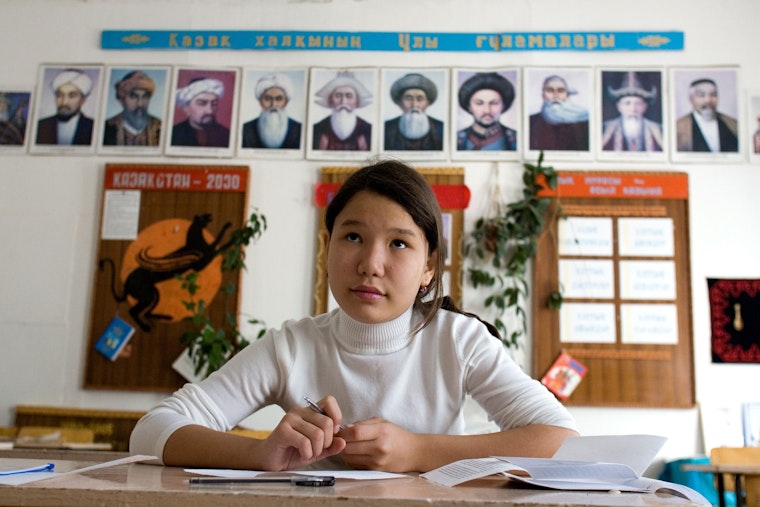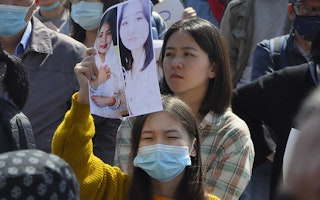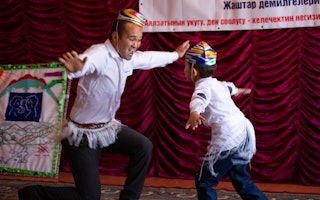The Crisis Afflicting Kazakhstan’s Youth
By Karlygash Kabatova & Sergey Marinin

Earlier this year, according to a local news site [link in Russian] in Kazakhstan, a teenage girl in a rural area gave birth to a child. The baby weighed about nine pounds; its mother was 13 and in seventh grade. Hers was one of the roughly 6,000 to 10,000 teenage births registered in Kazakhstan each year. And if her story is like that of many of these girls, she will end up giving up her education and future employment prospects—and marrying the child’s father instead.
As those figures show, this problem is hardly exclusive to rural parts of Kazakhstan. In fact, according to a 2016 report from the United Nations Fund for Population Activities, the birth rate in Kazakhstan for girls between 15 and 19 years of age was 28 per 1,000. In the countries of the Organization for Economic Cooperation and Development, by comparison, the rate is fewer than five per 1,000. Given that fewer than three out of 10 sexually active 15–19 year-olds in Kazakhstan use contraception, these numbers are not a surprise.
They are, however, indicative of a crisis. As has been shown in countless studies, low rates of contraceptive use leads to teenage pregnancies, early marriages, abortions, sexually transmitted diseases, and higher rates of fatality for both mothers and their children. In the interest of confronting these social ills—and preventing an unknown number of future tragedies—we decided to conduct a study to answer a simple question: Why do so many young people in Kazakhstan know so little about reproductive health?
To begin, we tried to understand if Kazakhstani youth have access to quality information about preserving sexual and reproductive health. We did this with the understanding that, generally, there is a correlation between positive indicators of sexual health among young people on the one hand, and the availability of sexual education (sex ed) on the other. So we focused on formal education and, more specifically, the availability of sex ed in Kazakhstan’s schools.
What we found was profoundly concerning. Simply put, there is no clear national-level policy on youth reproductive health. And the state-level initiatives that do exist are usually not only ad hoc but sporadic. The cultural taboo against discussing sex and intimate relationships openly is, if anything, even more pronounced when it comes to young people. As a consequence there is not only no real national sex ed policy, but also a lack of political will to create one.
Consequently, our report establishes [link in Russian] three main principles that must guide curricula reform:
- Young people must have access to evidence-based and scientifically accurate information about reproductive and sexual health.
- In order to ensure that young people can make informed decisions about their sexual health, sex ed courses should also promote so-called soft skills, which encourage critical thinking, social adpetness, self-empowerment, and personal growth.
- Sex ed courses should not only provide young people with the information they need, but also promote a positive and healthy understanding of sexuality rather than one focused mainly on abstinence.
As the breadth of these principles suggests, simply adding sex ed to national curricula will not be enough. To truly address the crisis plaguing Kazakhstan’s youth and families, government authorities must reach out to and engage members of civil society, as well as parents, teachers, healthcare providers, and other stakeholders. Ultimately, Kazakhstan’s greatest national asset is its young people. It’s time they were given the knowledge, support, and attention they deserve.
Ms. Kabatova is a former grantee of the Open Society Foundations, and Mr. Marinin is a current grantee of the Open Society Foundations.
Karlygash Kabatova is an independent researcher for Uyatemes.kz, a judgment-free educational platform for youth striving to increase their sexual and reproductive health literacy.
Sergey Marinin is a research fellow at Centre for European Security Studies.


